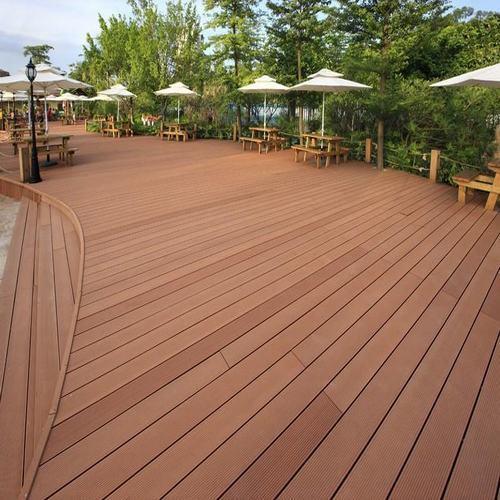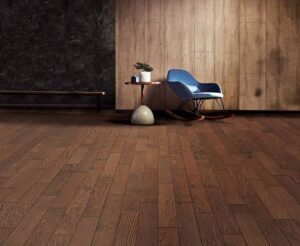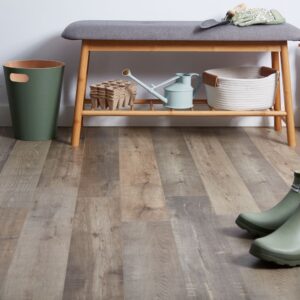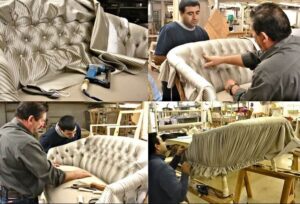
When it comes to choosing the right flooring, the term “waterproof” often catches homeowners’ attention—and for good reason. With the rise in popularity of wood plastic composite (WPC) flooring, many are wondering: Is WPC flooring really waterproof, or is it just water-resistant? In this post, we’ll break down the facts, clear up some common myths, and help you understand whether WPC flooring is the right fit for your space.
What is WPC Flooring?
Before diving into its water-resistant properties, it’s important to understand what WPC flooring actually is. WPC stands for Wood Plastic Composite, a type of engineered vinyl flooring that blends natural wood flour or fibers with thermoplastic materials. This fusion creates a durable, stable, and comfortable flooring solution that’s ideal for both residential and commercial applications.
The typical WPC flooring plank consists of four layers:
- Wear Layer – Protects against scratches and stains.
- Vinyl Top Layer – Adds realistic wood or stone looks.
- WPC Core – The thick, waterproof core made from wood and plastic.
- Attached Underlayment – Adds cushioning and sound absorption.
The Myth: WPC Flooring is 100% Waterproof in All Conditions
Many people assume that WPC flooring is completely impervious to water—no matter the scenario. While WPC is often advertised as waterproof, the truth is a little more nuanced. It’s crucial to understand the limits of its waterproof properties to make informed decisions.
The Truth: WPC Flooring Is Waterproof, But With Conditions
Here’s the good news: WPC flooring is engineered to be highly water-resistant, making it one of the best options for moisture-prone areas. Thanks to its solid, non-porous core, WPC planks do not swell, warp, or peel when exposed to moisture like traditional hardwood. This makes it suitable for:
- Bathrooms
- Kitchens
- Laundry rooms
- Basements
- Entryways
However, the “waterproof” label doesn’t mean invincible. While the core repels water, problems can arise when water seeps between plank seams or under the flooring. Prolonged standing water, floods, or installation over improperly sealed subfloors can still cause damage, especially to the sublayer beneath.
Common Misconceptions About WPC Flooring and Water
Let’s debunk a few myths that often confuse buyers:
Myth 1: WPC flooring can be submerged in water without damage.
Fact: While WPC flooring can resist spills and humidity, full submersion (like in a flood or overflowing appliance) can still damage the floor over time or affect the subfloor.
Myth 2: All waterproof floors are created equal.
Fact: Not all waterproof floors offer the same protection. WPC has a strong resistance to water, but SPC (Stone Plastic Composite) flooring may perform even better under heavy moisture due to its stone core. Still, WPC provides a warmer, more cushioned feel underfoot, which many homeowners prefer.
Myth 3: Waterproof means maintenance-free.
Fact: Even waterproof flooring requires regular cleaning and immediate attention to spills. Leaving liquids to sit for long periods can still impact adhesives or cause mold under the surface.
How to Maximize WPC Flooring’s Water Resistance
To get the most from your WPC flooring and ensure it lives up to its waterproof reputation, follow these best practices:
Professional Installation: Proper installation is key. Ensure planks are tightly locked and sealed at seams to prevent water seepage.
Use Moisture Barriers: If installing over concrete or in a basement, use a moisture barrier to protect the subfloor.
Clean Spills Immediately: Wipe up liquid spills promptly to avoid any possible penetration between seams.
Maintain Humidity Levels: Though WPC handles moisture well, extreme humidity or dryness can affect all flooring types. Maintain a balanced indoor climate.
Avoid Steam Cleaning: Excessive moisture from steam can damage the floor or impact glue-bonded edges.
So, Is WPC Flooring Right for You?
If you’re looking for a stylish, durable, and highly water-resistant flooring option that offers a warm, comfortable feel underfoot, WPC flooring is an excellent choice. It’s ideal for active homes with kids, pets, and high foot traffic, especially in areas prone to spills or humidity.
However, if your area is prone to flooding or extreme moisture, you might consider alternatives like SPC or ceramic tile for maximum water protection. WPC flooring does its job well—but like any material, it performs best when used within its limits.
Conclusion
WPC flooring Abu Dhabi is indeed waterproof in most day-to-day scenarios, offering strong protection against moisture, spills, and humidity. It provides a reliable and attractive solution for modern living—but it’s important not to confuse “waterproof” with “indestructible.” By understanding its strengths and limitations, you can enjoy long-lasting performance and peace of mind.
So, the next time you hear that WPC flooring is waterproof, you’ll know the facts—and how to make the most of this innovative flooring solution.




